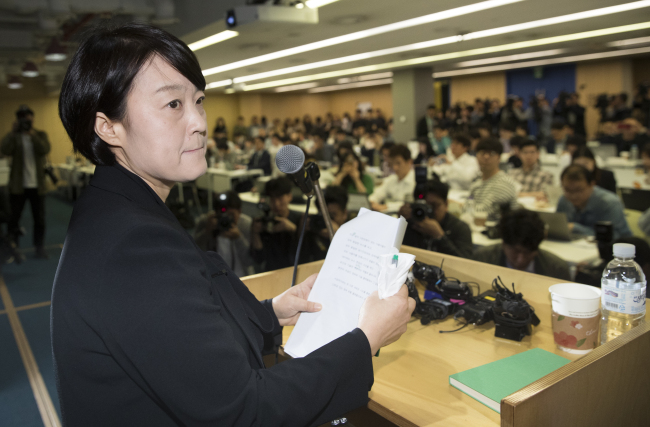The Korean Association of Newspapers, South Korea’s flagship newspaper union, on Tuesday demanded the government enact new legislation mandating the country’s internet portal websites, including Naver, adopt an “outlink system” for news articles displayed on their platforms.
The union urged the government and lawmakers to legally mandate all portal sites adopt the outlink system in order to break down their centralized control over the local online news distribution system.
The demands come in light of burgeoning controversy following an opinion-rigging scandal here that involved the abuse of the article display and comment thread structure of Naver, the country’s top portal website through which most people here access news.
 |
(123RF) |
It was recently revealed that a power blogger under the name “Druking” and former members of the ruling party used a computer program to artificially ramp up the number of clicks on the “agree” button on comments for specific news articles displayed on Naver to sway public opinion.
The case ignited public fury on Naver and its apparent failure to prevent interference, leading to criticism the portal had become a powerful, centralized news channel that can be manipulated to sway public opinion.
Currently, Naver curates and displays news articles from dozens of media companies on its main page and news tab.
When a user clicks on an article, the content is shown within Naver’s site, under an “inlink system.” Below an article is a comment system run independently by Naver that shows the most-liked comments at the top.
As one way of diffusing Naver’s direct control and the centralized comment structure, an “outlink system” has been proposed. In an outlink system like the one used by Google News, users who click on an article would be redirected to the media company’s own website.
Naver recently pledged to relinquish its authority to edit news headlines and to remove the list of news and popular search keywords on the starting page on its site. However, the changes have so far been applied only to its mobile website.
Naver also said it would introduce, in incremental steps, an outlink system for news articles through discussions with individual news companies. But in this case, the portal website said it would stop the content fees it currently pays to news firms.
 |
Naver CEO Han Seong-sook attends a press conference to discuss upcoming changes to the company’s online news and comment system, held at the Naver Partner Square in Gangnam-gu, southern Seoul on May 9. (Yonhap) |
In addition, the portal has also adopted a new set of rules for its news comment system, such as capping the number of comments a user can click “agree” or “disagree” on to 50 per day, and allowing users to post just three comments per day on news articles.
However, critics say the changes would do little to prevent rigging attempts similar to Druking’s. One would simply need to recruit more borrowed accounts, they argued.
The Korean newspaper union does not view Naver’s proposal as an authentic gesture, calling it a move to temporarily ease public anger at the company. It says the move is insufficient to restore press autonomy of online news distribution.
“We need concrete policies in order to truly transform the portal site news service market and to prevent the retreat of reforms,” the union said in Tuesday’s statement.
“Portal news service policies, including the outlink system, should become regulated by law and be applied to not only Naver but all portal news companies. Portal websites should also take joint responsibility for fake news and comments alongside media companies,” it said.
By Sohn Ji-young (
jys@heraldcorp.com)






![[Exclusive] Hyundai Mobis eyes closer ties with BYD](http://res.heraldm.com/phpwas/restmb_idxmake.php?idx=644&simg=/content/image/2024/11/25/20241125050044_0.jpg)
![[Herald Review] 'Gangnam B-Side' combines social realism with masterful suspense, performance](http://res.heraldm.com/phpwas/restmb_idxmake.php?idx=644&simg=/content/image/2024/11/25/20241125050072_0.jpg)

